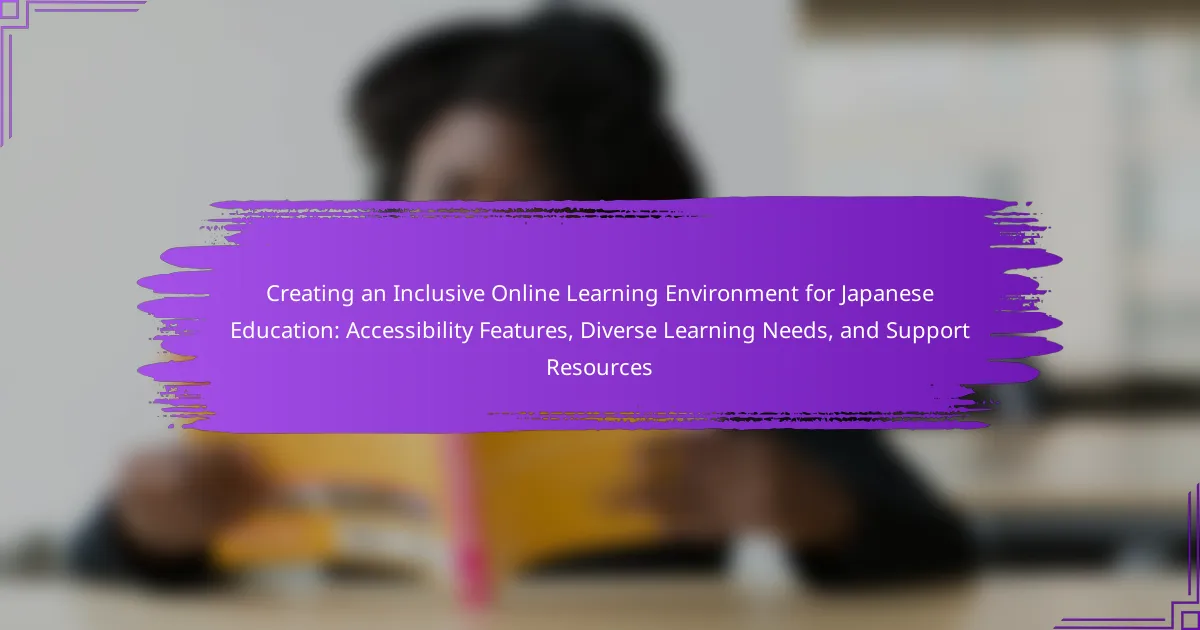What is an Inclusive Online Learning Environment in Japanese Education? An inclusive online learning environment in Japanese education is a digital space designed to accommodate diverse learning needs. It integrates accessibility features to support students with varying abilities. This environment promotes equal participation and engagement for all learners. It includes resources like assistive technologies, adaptable […]
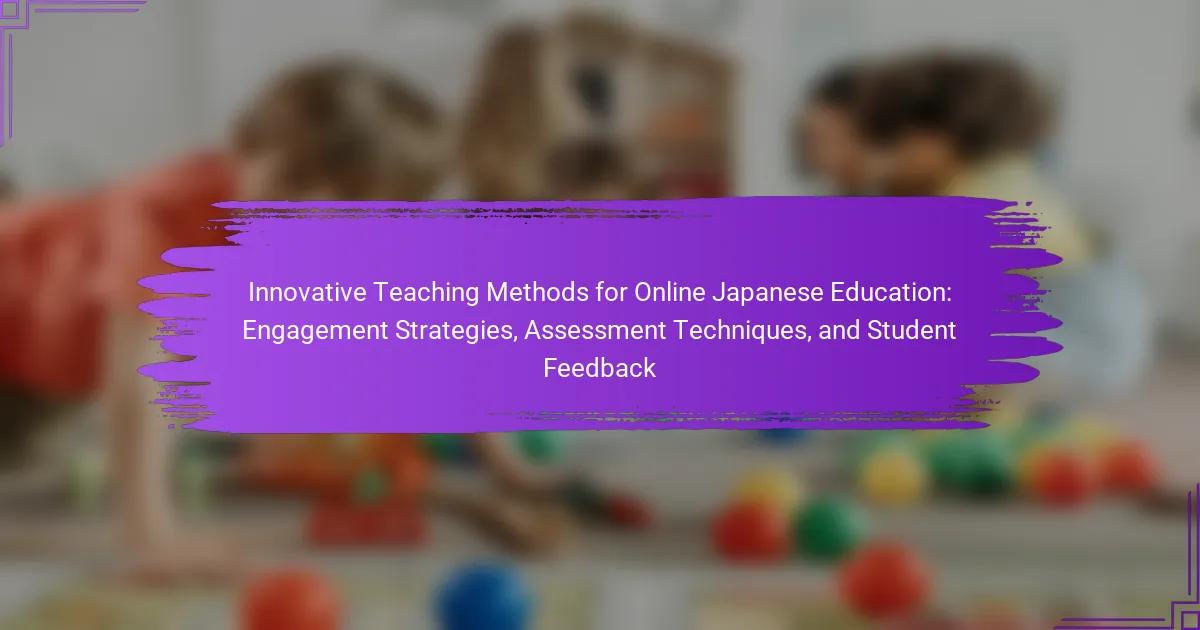
Innovative Teaching Methods for Online Japanese Education: Engagement Strategies, Assessment Techniques, and Student Feedback
What are Innovative Teaching Methods for Online Japanese Education? Innovative teaching methods for online Japanese education include interactive platforms, gamification, and personalized learning experiences. Interactive platforms like Zoom and Google Classroom facilitate real-time communication and collaboration. Gamification incorporates game elements to enhance motivation and engagement in language learning. Personalized learning experiences adapt to individual student […]
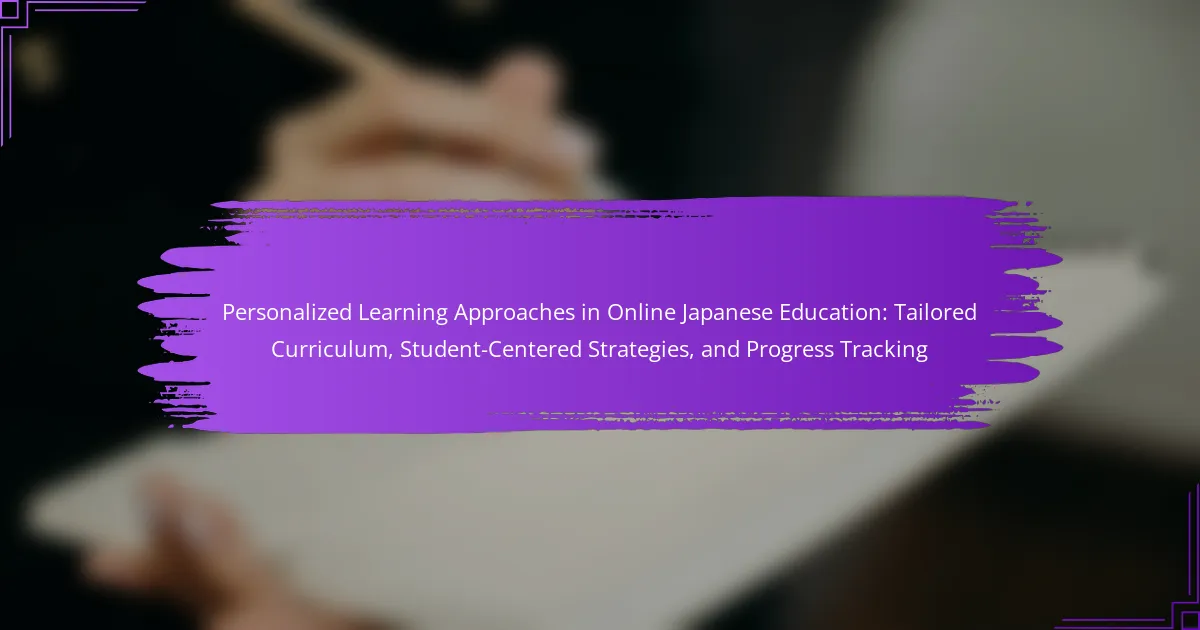
Personalized Learning Approaches in Online Japanese Education: Tailored Curriculum, Student-Centered Strategies, and Progress Tracking
What are Personalized Learning Approaches in Online Japanese Education? Personalized learning approaches in online Japanese education tailor the learning experience to individual student needs. These approaches consider each student’s learning style, pace, and interests. They use adaptive learning technologies to modify content delivery. Personalized learning can include customized lesson plans and assessments. Students benefit from […]

The Benefits of Using Authentic Japanese Media in Online Classes: Cultural Exposure, Language Practice, and Student Engagement
What are the benefits of using authentic Japanese media in online classes? Using authentic Japanese media in online classes enhances cultural exposure, language practice, and student engagement. Cultural exposure is achieved through real-life contexts presented in media, which helps students understand Japanese customs and societal norms. Language practice improves as students encounter colloquial expressions and […]

Assessment and Evaluation Methods in Online Japanese Education: Formative Assessments, Summative Assessments, and Feedback Mechanisms
What are Assessment and Evaluation Methods in Online Japanese Education? Assessment and evaluation methods in online Japanese education include formative assessments, summative assessments, and feedback mechanisms. Formative assessments are ongoing evaluations that provide insights into student progress. They can include quizzes, discussions, and interactive activities. Summative assessments occur at the end of a learning period […]
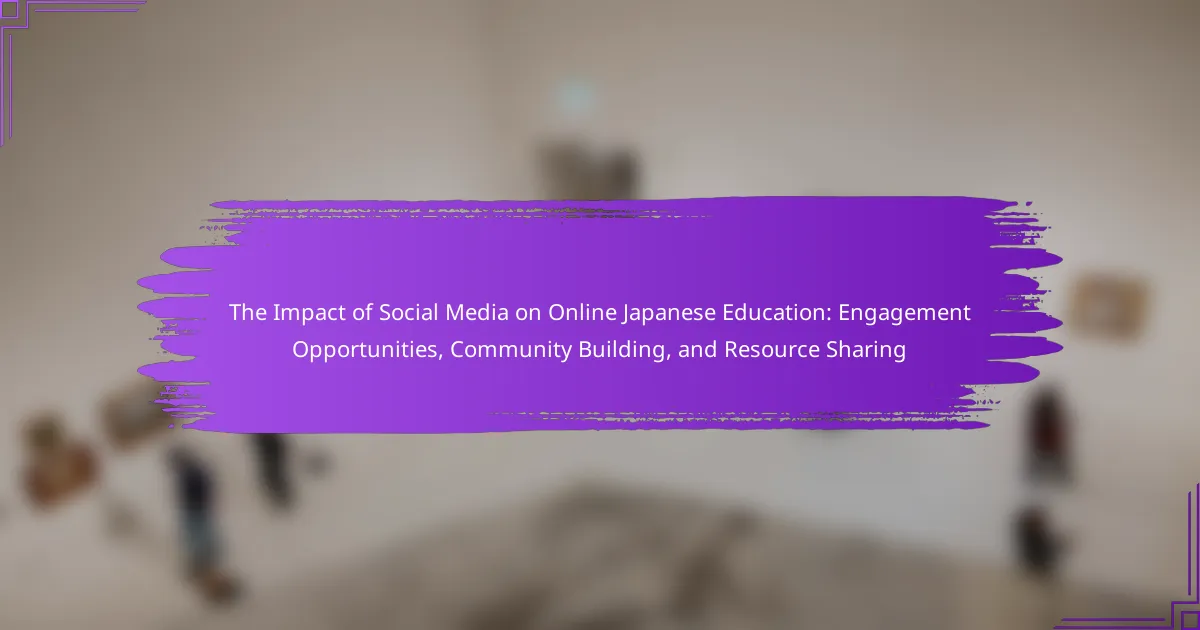
The Impact of Social Media on Online Japanese Education: Engagement Opportunities, Community Building, and Resource Sharing
What is the Impact of Social Media on Online Japanese Education? Social media significantly enhances online Japanese education by facilitating engagement, community building, and resource sharing. Platforms like Facebook, Twitter, and Instagram enable learners to interact with peers and instructors in real-time. This interaction fosters a sense of community among students, which can improve motivation […]
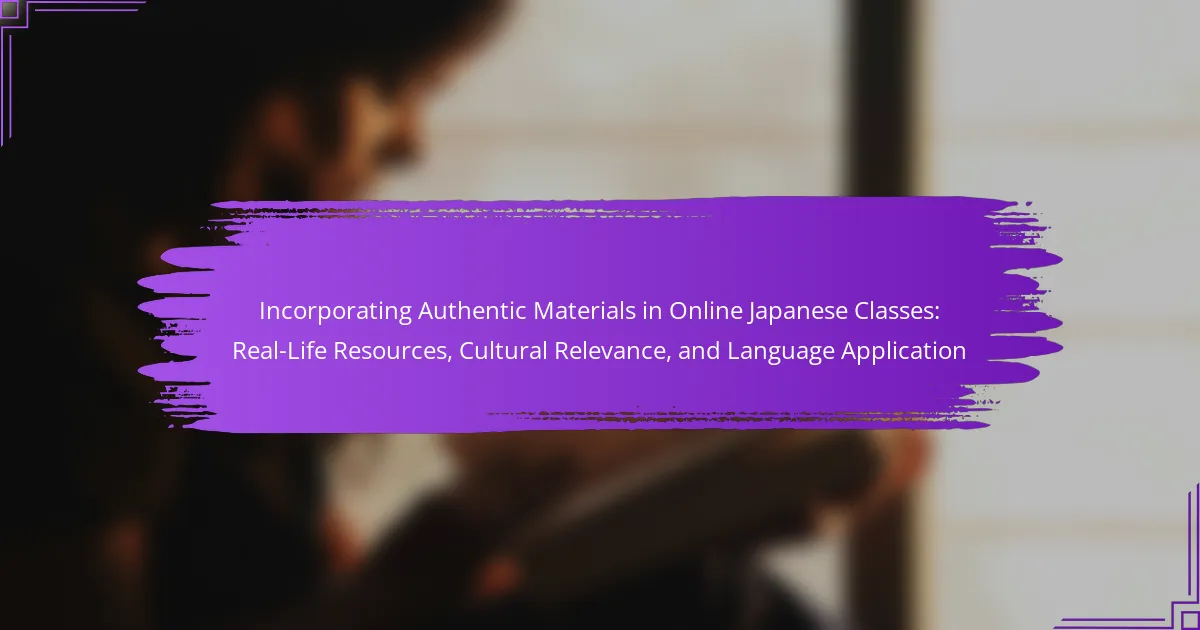
Incorporating Authentic Materials in Online Japanese Classes: Real-Life Resources, Cultural Relevance, and Language Application
What are Authentic Materials in Online Japanese Classes? Authentic materials in online Japanese classes are real-life resources used to enhance language learning. These materials include newspapers, videos, songs, and social media posts in Japanese. They provide learners with exposure to natural language usage and cultural context. Authentic materials help bridge the gap between classroom learning […]
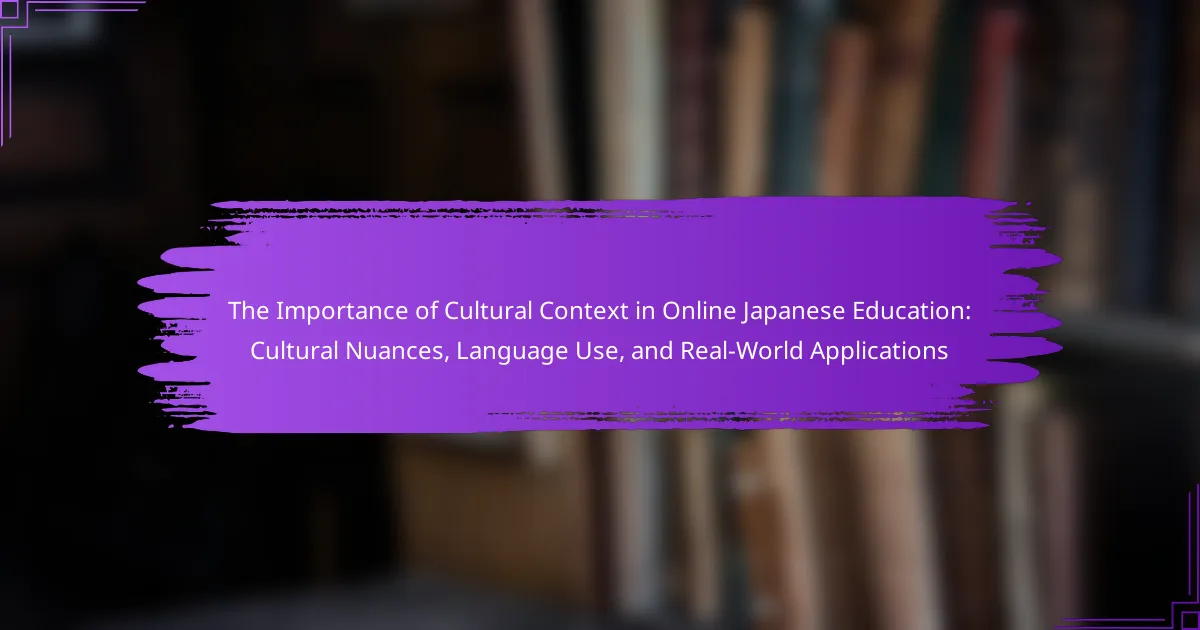
The Importance of Cultural Context in Online Japanese Education: Cultural Nuances, Language Use, and Real-World Applications
What is the Importance of Cultural Context in Online Japanese Education? Cultural context is crucial in online Japanese education as it enhances language comprehension and usage. Understanding cultural nuances aids learners in grasping idiomatic expressions and social cues. This knowledge fosters effective communication with native speakers. Studies show that language learning is deeply intertwined with […]
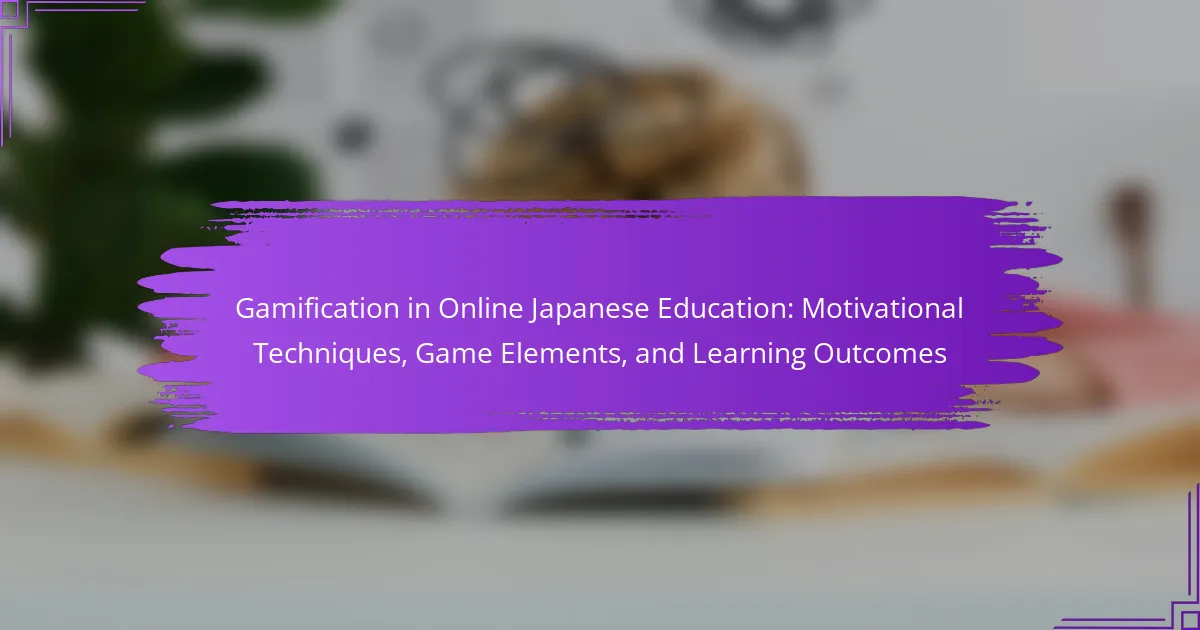
Gamification in Online Japanese Education: Motivational Techniques, Game Elements, and Learning Outcomes
What is Gamification in Online Japanese Education? Gamification in online Japanese education refers to the integration of game elements into the learning process. This approach aims to enhance student engagement and motivation. Common game elements include points, badges, and leaderboards. These features encourage competition and reward achievement. Research shows that gamification can improve learning outcomes […]

Collaborative Learning Techniques for Online Japanese Classes: Group Projects, Peer Reviews, and Community Building
What are Collaborative Learning Techniques in Online Japanese Classes? Collaborative learning techniques in online Japanese classes include group projects, peer reviews, and community building. Group projects enable students to work together on specific language tasks, enhancing their communication skills. Peer reviews allow students to assess each other’s work, promoting critical thinking and constructive feedback. Community […]
